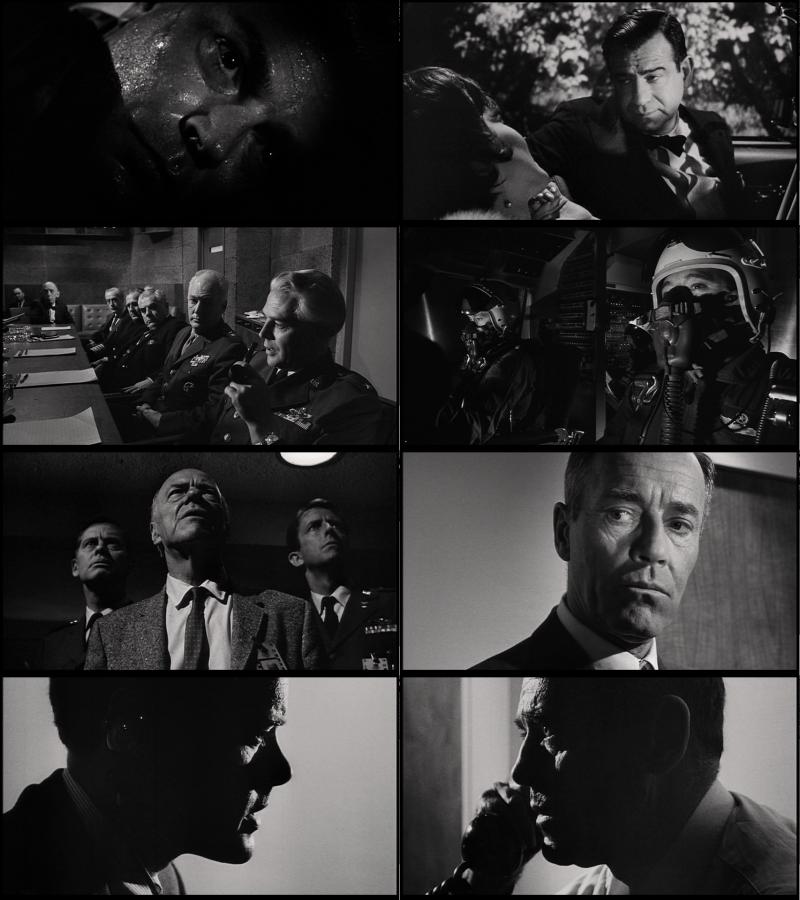Fail-Safe (1964)
Fail-Safe (1964), directed by Sidney Lumet.
An intense Cold War thriller about an accidental nuclear attack on the Soviet Union, the scramble to figure out what's happening, how to stop it, and finally how to prevent World War III and nuclear annihilation.
Starkly shot with no musical score. Simple sets as required by the low budget.
Dan O'Herlihy has memorable opening and closing scenes: it begins with his recurrent nightmare, a bullfight and the kill. He can't see the matador's face, but it has something to do with his job as General on the Joint Chiefs. He and his wife begin their day by discussing plans, but we have the ominous feeling none of it will happen. In the last scene he learns what the dream means.
Henry Fonda is the perfect film President: calm, folksy, the guy sitting where the buck stops. He has an orderly mind, thinks fast and does what's necessary. But I don't think a real president would adopt his solution to the crisis, threat of WW3 or no.
The DVD has a commentary track by the director, watching the film for the first time in many years. He says:
The movie is based on a best-selling novel of the same name, but before filming began they were sued for plagiarism by the author of Red Alert, Columbia Studios and Stanley Kubrick, who were making Dr. Strangelove (1964) based on that book. In an out of court settlement Columbia bought up the project and distributed both films. It released Strangelove first, which seems like an odd decision: wouldn't you want the drama first and then the satire?
The military settings are purely imaginary, as they had no cooperation in discovering how the facilities actually looked. The aviation clips are a scrounged hodgepodge without any continuity.
Walter Matthau's character was based on Herman Kahn.
He says everyone working on the project was "political". I think I know what he means, but am less clear on the message. That nuclear war would be bad? Everyone already understood that. That we should guard against the risk of starting a war by accident? Agreed, and he notes that natural technological faults and complexity made accidents inevitable, a good point. That there was a political way out of the Cold War and nuclear standoff? That is not so clear.
He seems to think it bold to present a General who is less warlike than the civilian consultant.
